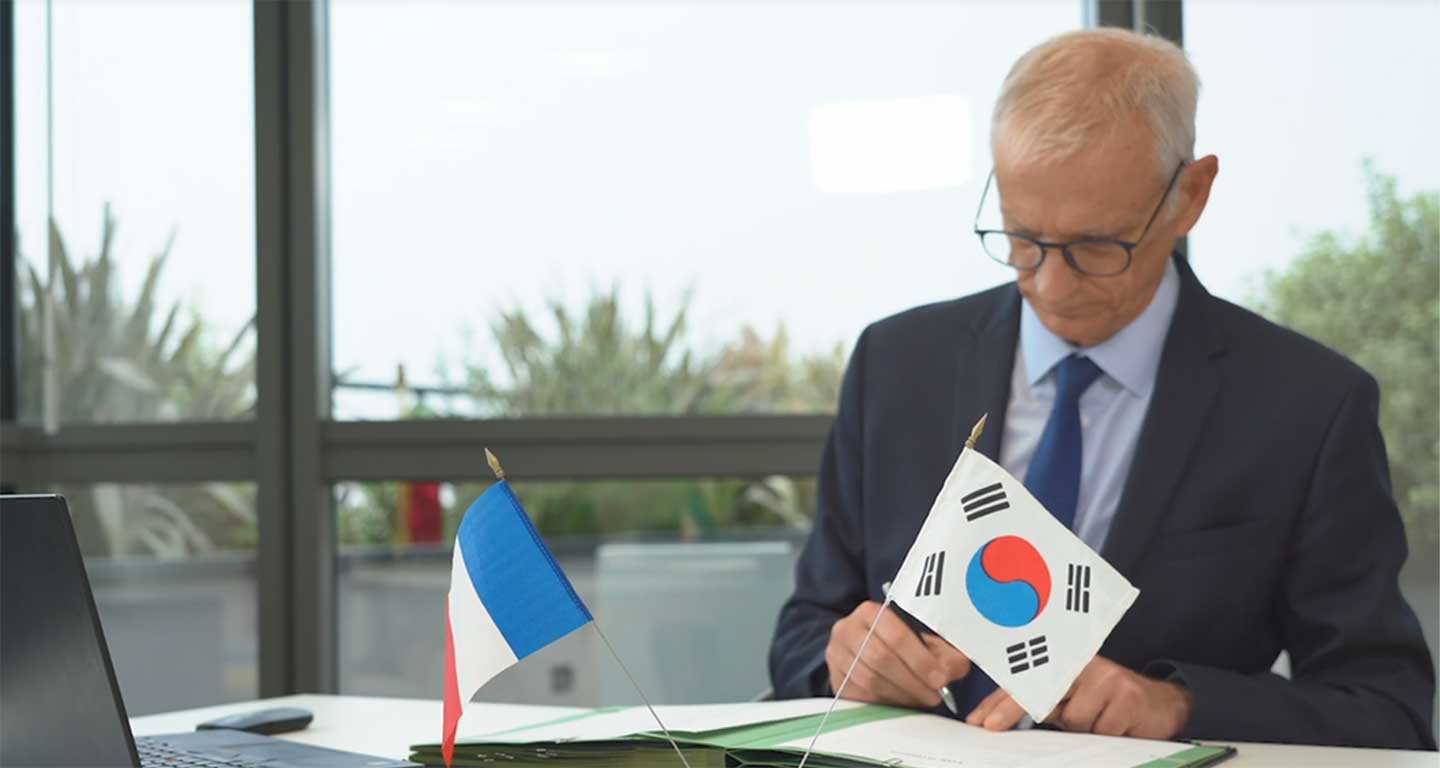Approval from French regulator ASN is required before ITER vacuum vessel welding can begin. (Photo: ITER)
In a February 28 article posted on the ITER Organization website, Gilles Perrier, head of ITER’s Safety and Quality Department, addressed the decision by French nuclear safety regulator ASN (Autorité de sûreté nucléaire) to delay the anticipated February 1 release of a preset tokamak assembly “hold point.”
Diablo Canyon nuclear plant. (Photo: PG&E)
Last April, Entergy had to close its Indian Point nuclear plant. That’s despite the plant’s being recognized as one of the best-run U.S. nuclear plants. That’s also despite its 20-year license extension process having been nearly completed, with full support from the Nuclear Regulatory Commission.
This closure was due in large part to opposition by antinuclear environmental groups. These groups also mobilized existing negative public opinion on nuclear energy to get politicians to oppose the plant’s license extension. Another factor is unfair market conditions. Nuclear energy doesn’t get due government support—unlike solar, wind, and hydro—despite delivering clean, zero-emissions energy.
(Source: Peter Schrank/The Economist)
“Where nuclear power was once a source of unity for Europe, today it is a source of discord.” So states The Economist’s October 30 “Charlemagne” column—a regular source of commentary on European politics in the weekly publication—before deftly dissecting nuclear power’s continental divide and picking a winner.
This still image from “The Green Atom” highlights how Germany’s decision to shut down its nuclear plants has resulted in electricity that is twice as expensive as in neighboring France. (Source: Kite and Key)
“You know what power source is more dangerous than nuclear? Literally, all of them. When you add up industrial accidents and the effects of pollution, nuclear is safer than coal or petroleum or natural gas.”
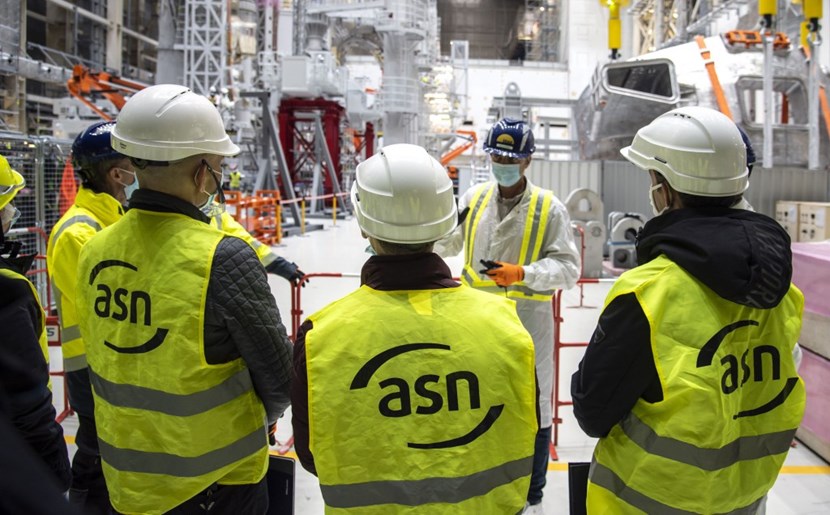


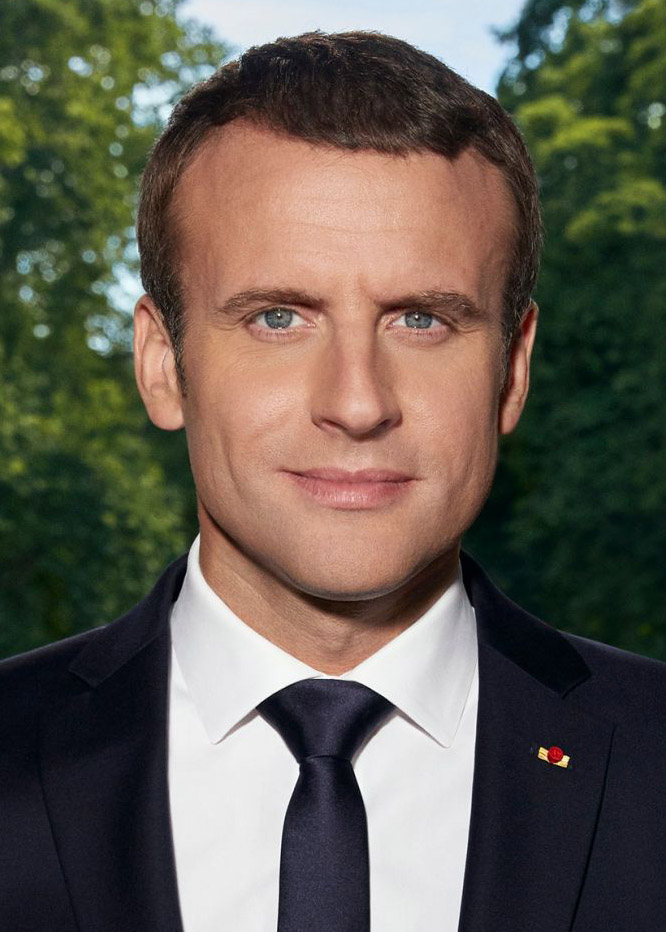
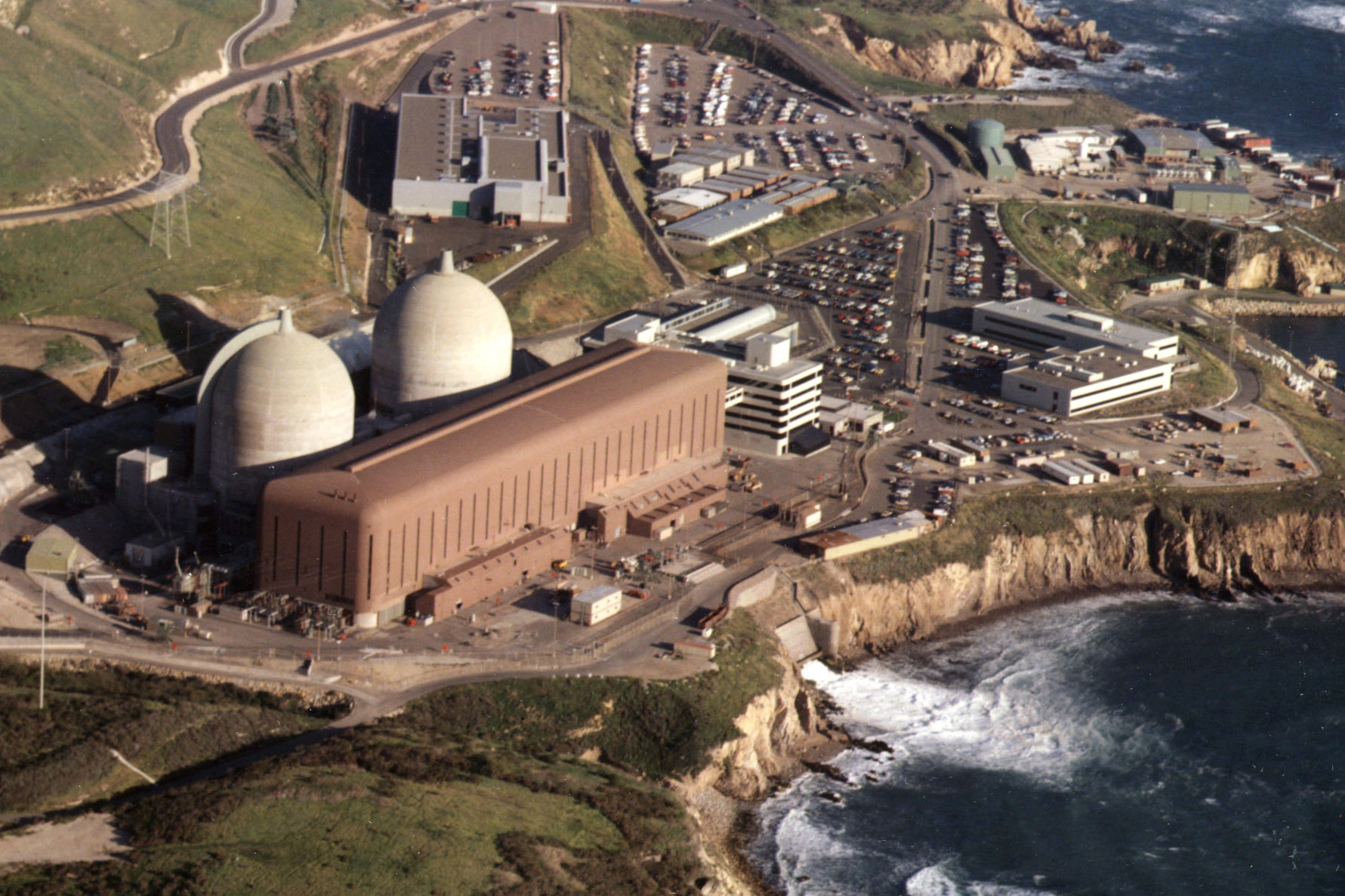

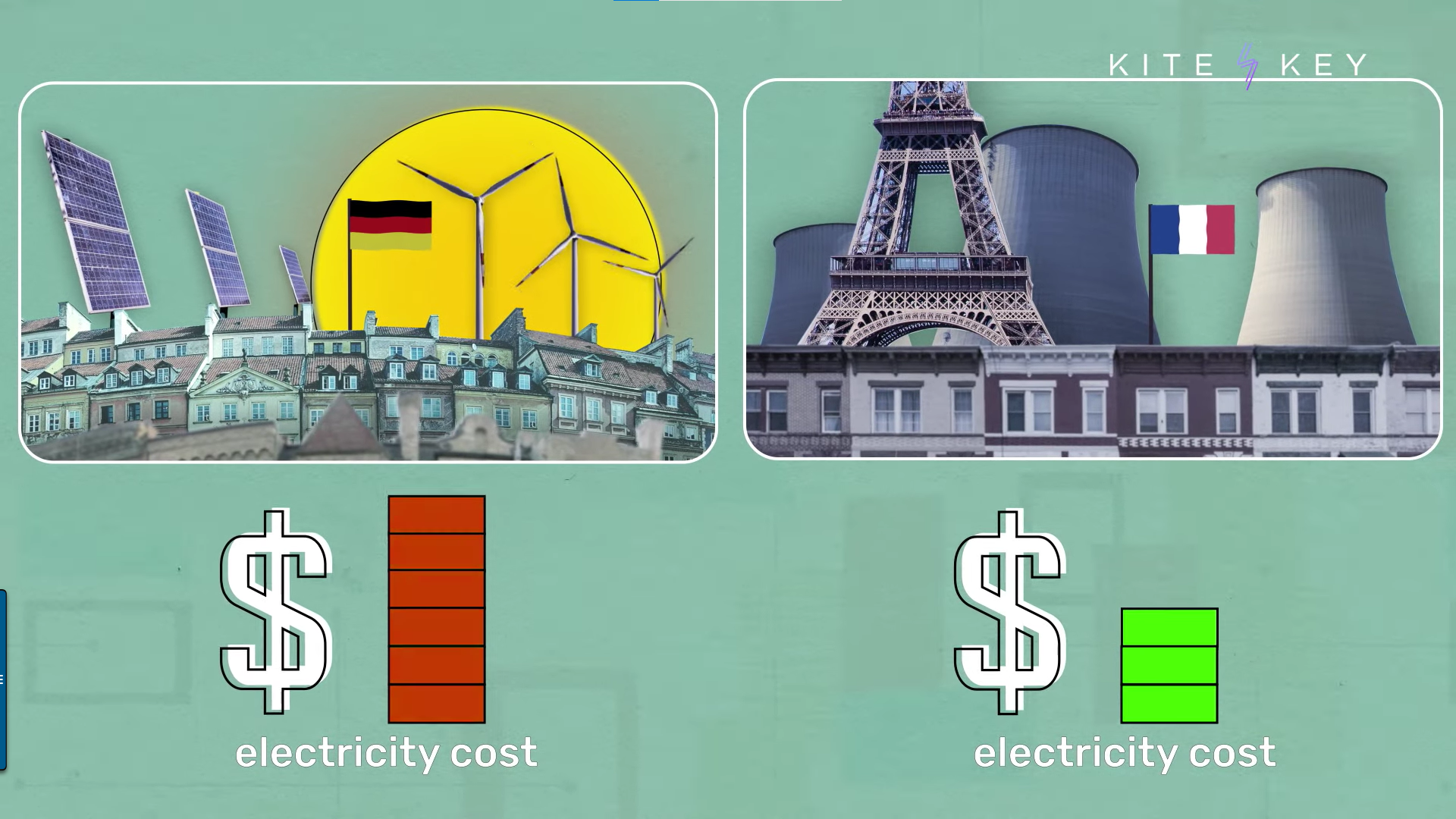
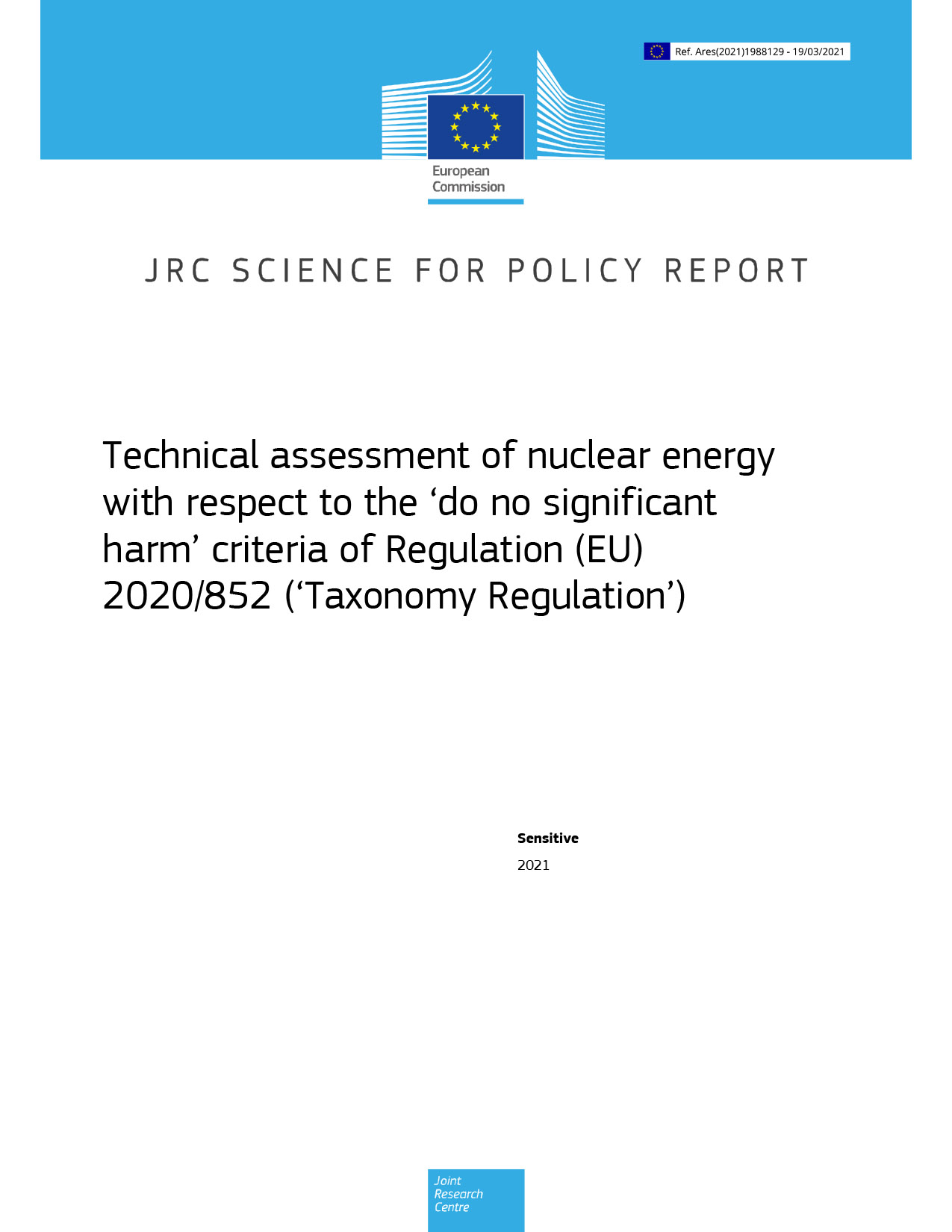 Within the European Union, recognizing nuclear energy as green, sustainable, and worthy of investment depends on nuclear being added to the EU taxonomy of “sustainable investments that have been found to ‘do no significant harm’ to human health and to the environment.” The EU will issue a final taxonomy this year, and a decision to include nuclear power—which was excluded from a draft released in late 2020—could raise prospects for public and private nuclear investments both inside and outside the EU.
Within the European Union, recognizing nuclear energy as green, sustainable, and worthy of investment depends on nuclear being added to the EU taxonomy of “sustainable investments that have been found to ‘do no significant harm’ to human health and to the environment.” The EU will issue a final taxonomy this year, and a decision to include nuclear power—which was excluded from a draft released in late 2020—could raise prospects for public and private nuclear investments both inside and outside the EU.